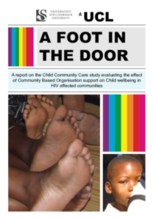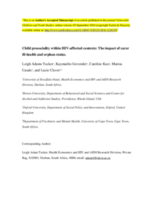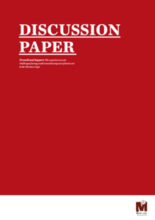childrens_living_arrangement
children_living_without_bio
Displaying 221 - 230 of 336
This video discusses the challenges social workers face in placing children for adoption in South Africa.
This article discusses the results of a cross-country research project in Sub-Saharan Africa regarding the impact of social protection on loss of parental care, support to foster or kinship care and quality of care and wellbeing in Sub-Saharan Africa.
CRS is looking for a Senior Technical Advisor to lead and provide technical assistance to SARO’s programming for orphans and vulnerable children, and to provide technical leadership and guidance on issues affecting programming for vulnerable children across the Southern African region.
The STA will provide regional leadership in the development and utilization of relevant strategies, guidelines, tools, and learning agendas, and in the documentation and dissemination of best practices.
This report evaluates the efficacy of community based organisations and discusses the need for the evaluation of community based care for children living in HIV communities.
This chapter of Young People Transitioning from Out-of-Home Care reviews the state of South African youth, particularly regarding poverty, employment and education, providing the social context within which to consider those leaving care.
This study focuses on the psychosocial well-being of youth affected by HIV and AIDS.
This report identifies key communications challenges faced by experts and advocates as they seek to elevate support for public policies that will best serve the developmental needs of all children in South Africa.
This paper initiates discussion by calling on Child and Youth Care (CYCCs) to offer transitional support to youth leaving care. It also intends to document and share information on new ways for youth to successfully transition out of care.
This paper analyses the experiences of adolescents in foster care placement with specific reference to participatory decision making in an indigenous African cultural context in South Africa.




